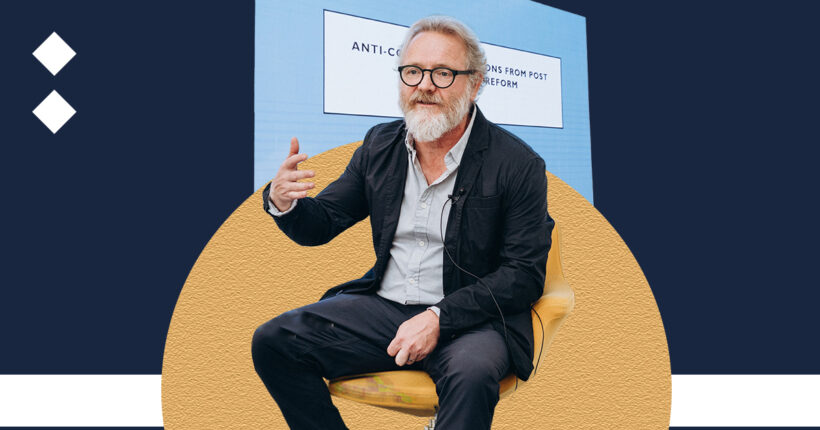
In the fall of 2023, the Kyiv School of Economics (KSE) organized a special class inviting esteemed international scholars to share their lessons on how Ukraine can recover and rebuild for a stronger future. The university arranged a class inviting esteemed international scholars to share their lessons on how Ukraine can recover and rebuild for a stronger future.
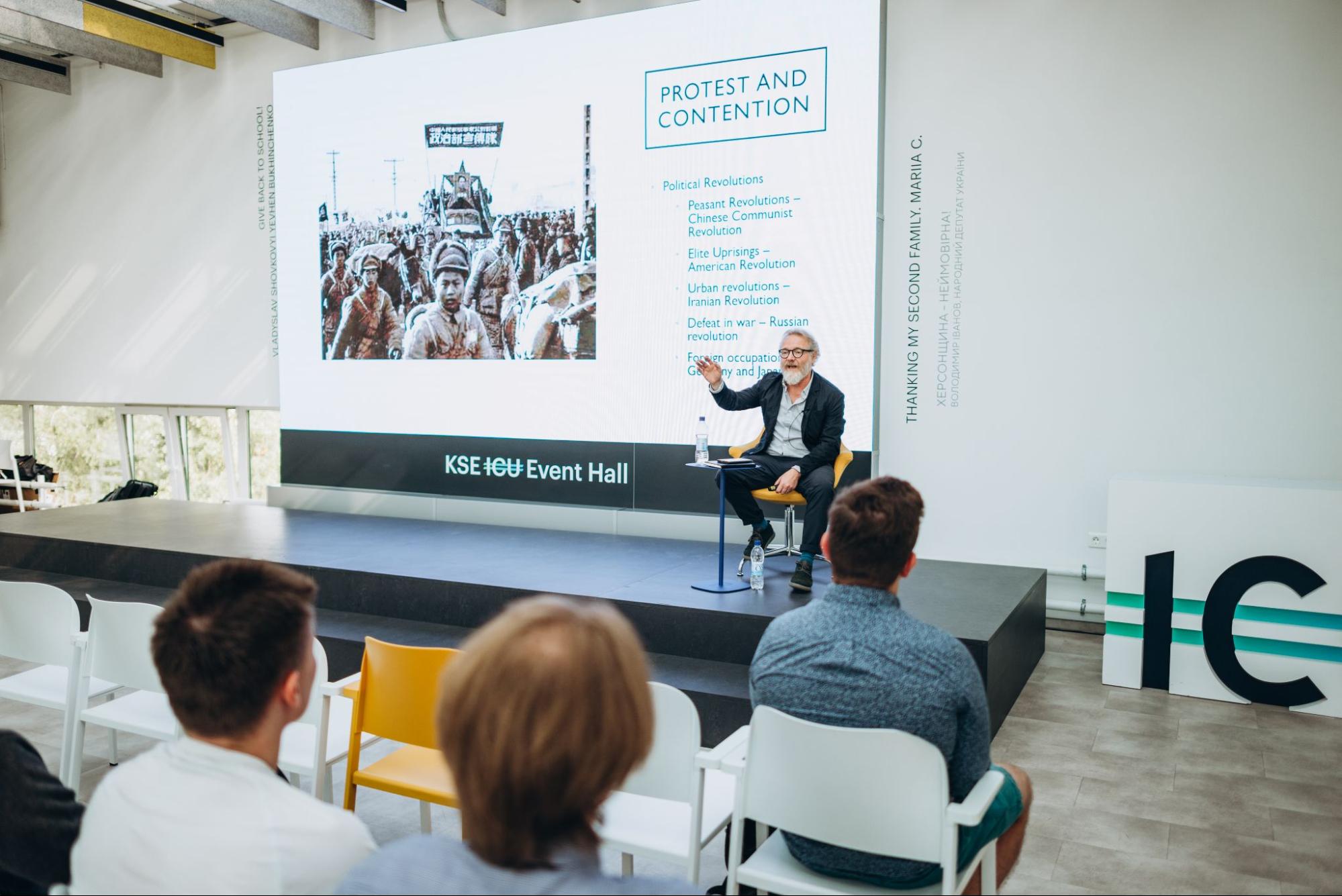
Graeme Robertson teaching class at KSE, fall 2023
Graeme Robertson, professor of Political Science and director of the Authoritarian Politics Lab at the University of North Carolina at Chapel Hill, was one of them. Rubryka spoke with him about Ukraine's image in academia and its efforts to make reforms and attract more aid, while still at war with Russia.
On reforms and corruption in Ukraine
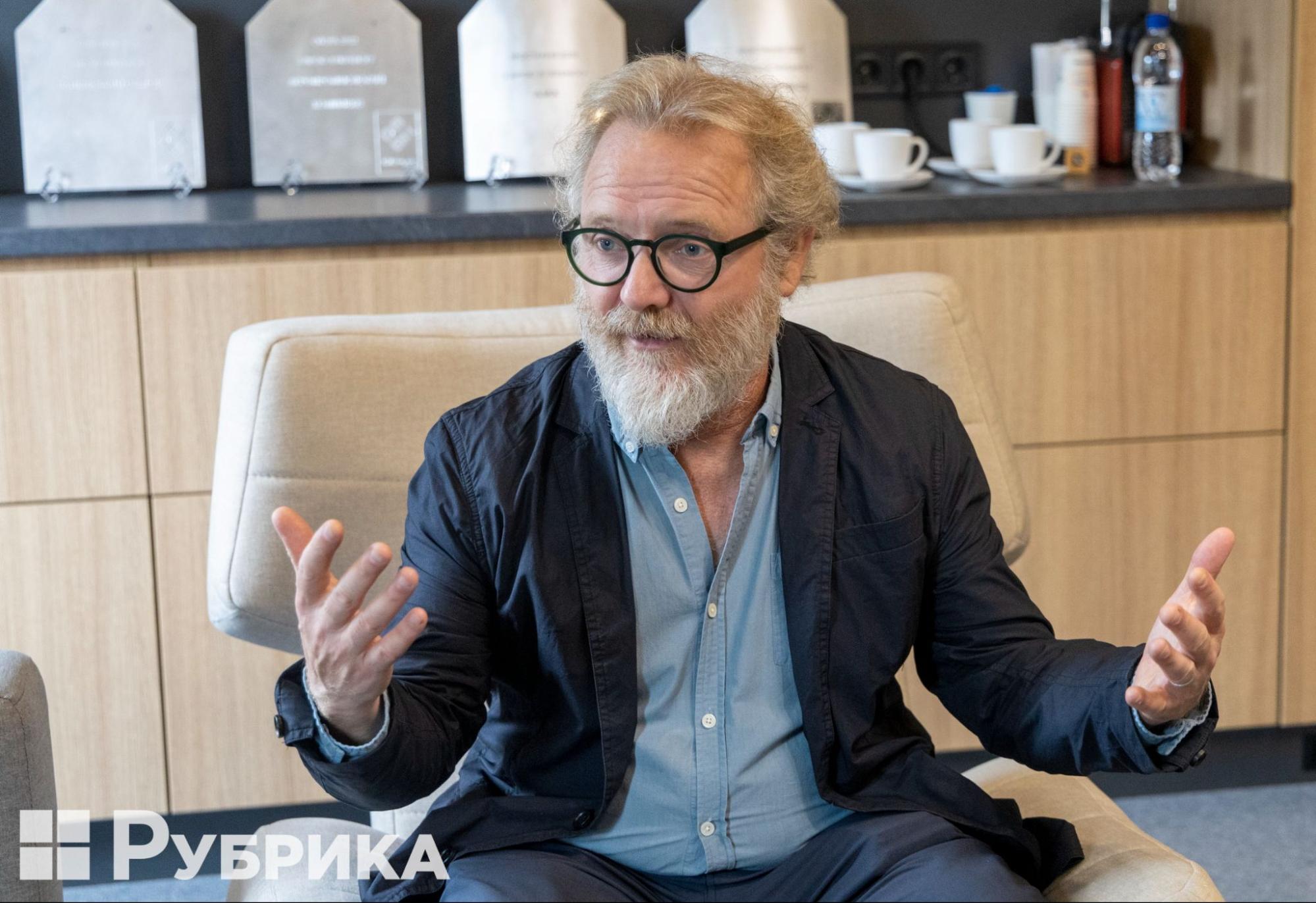
— You discussed anti-corruption lessons from post-Maidan (Revolution of Dignity of 2013-2014) Ukraine regarding police reform at the Kyiv School of Economics. Can you briefly summarize it for those who didn't attend the session?
— What I was talking about the first day was, as you say, police reform. And what we were interested in was the political incentives for politicians to make reforms. Anti-corruption reforms are costly. You're going to upset people. So for a politician to actually, rationally engage in that, then there has to be some kind of benefit.
[Researchers are] interested in the extent to which political credit rebounded to politicians for reforms, and if people even noticed the reforms at all. We focused on police reform because they were rolled out over time, sort of without a lot of attention to which places needed it most. It was who was ready to take on the reforms. And so it's almost like it was random which cities did it first.
And so then you could compare cities that had the reforms and cities that didn't have the reforms. And what we found was that when you do that, what happens is people do notice the reforms. They really consider the police to be less corrupt.
There is some political credit for then-President [Petro] Poroshenko and his political party. But the catch is that the credit doesn't last very long. When you compare that sort of early reforms and later reforms within about six months, people have kind of almost forgotten that police reform has taken place. They think the police are a bit less corrupt, but there's not really much difference and the political credit has kind of gone away.
— What do you see as the main reason why not so many reforms in Ukraine have been really successful?
— The political environment is such that reform is difficult, there are a lot of vested interests against reform, and what our research suggests is that the political benefits from actually being a reformer are pretty limited – you tend to get credit for it from your own political party, but you don't get much credit for it from other people, from independents or from people who support other parties. And so it's tricky because there's not really a lot of political incentive to push hard and keep going with reforms over time.
On Russia's war
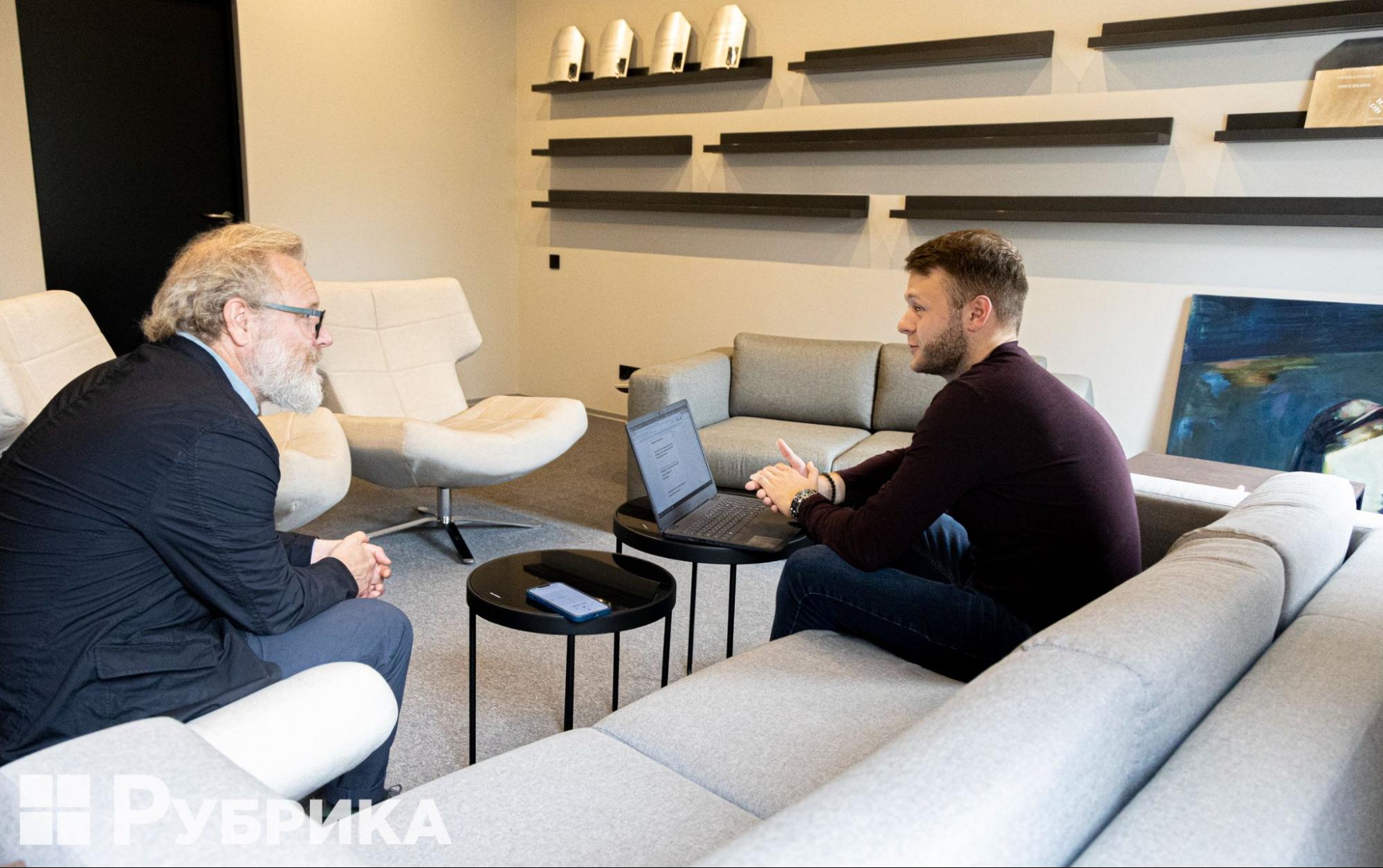
— I have a lot of questions about the war. In December 2021, you co-authored the op-ed for the Washington Post, titled "Threatening to invade Ukraine will help Putin at home, invading won't" — speaking almost two years after that, did it help?
— I don't think about that question a lot. The reason that I thought at that time that actually invading Ukraine would be a huge mistake for Putin was that Ukraine would resist. The idea that somehow the Russians could easily take over Ukraine was a mistake. And that proved to be true. It's been extremely costly, both for Russia in terms of economic cost, but also in terms of human losses at the front, and so all the things that you would have thought that would sap support, that would draw support away from Putin have actually happened.
And yet, in terms of public support, he retains quite a lot. It's hard to tell because Russia is not a free country at all, and it's even more repressive now than it was before the war.
So it's hard to know the answers are from people who say, "yes, I approve of Putin, yes, the country is going in the right direction," which you see in all the polls in Russia. It's hard to know what that means.
On the other hand, what really happened over the course of the war is that people in the Russian elite have started to imagine Russia without Putin. And Putin is actually weaker now in terms of domestic politics than he was before.
— You studied Russia a lot. You wrote a lot of articles about Russia over decades. How do you see that war can end in terms of Putin's close circle?
— So what Putin did at the beginning of the war, and you probably remember this, is the day when they announced the recognition of the so-called Donetsk and Luhansk People's Republics. That made it clear that they were going to invade. They couldn't gather these officials together for this weird public show.
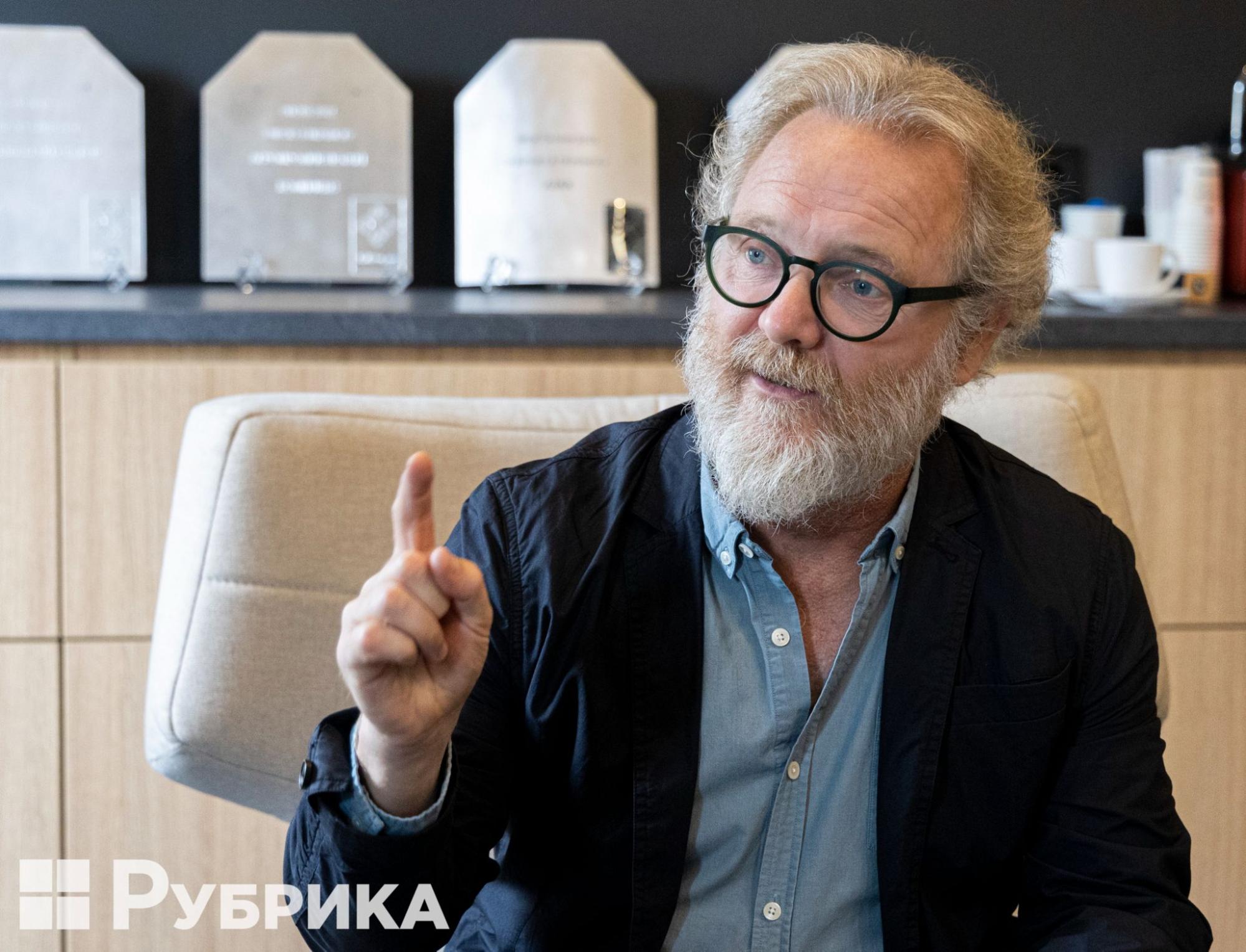
— Right, and he asked for their opinion exactly, and not all of them were so strict if Russia should really invade. It was kind of like a circus for us actually watching that show. It was like a class when asked to go in front of the audience and speak one by one.
— It was just bizarre. I think what he was doing that day was essentially, it was like he had a big bowl of blood, Ukrainian blood, and it was getting everyone to dip their hands in it together.
[As if to say:], "We did this together, right? This is not me, this is all of us." And what he was trying to do was link his fate to theirs. And they know that without him, they're nothing. And they also know that they bear as much responsibility for the war as he does. And so what he's trying to do is make, like bind them into an alliance that will last even if Russia loses this war, right? This is the sort of classic strategy of a sort of personalist dictator who is in the small circle, people in whom power really turns.
These kinds of guys historically can lose wars and stay in power. Normally, if you're a democratic leader, and you fight a war, and you lose, you lose. But these guys tend to be able to hang on. So he's trying to do this, create this kind of personal bond to him. It's really hard to do that, and I think that Prigozhin's rebellion — or whatever you want to call that weird series of events in the summer — reminded everybody how vulnerable this regime could be. Prigozhin did not make much of an effort to acquire the kinds of allies that you would need to make that sort of thing work, but it acted out a scenario in which Putin gets overthrown — and we've never seen that before.
And so that makes him weaker in terms of his inner circle and I think what we've seen in terms of the Russian public is the Russian public will go along with whatever. Yeah, it gets decided for them. They're not supportive of the war, but they're not critical of the war.
They're very passive, and so in some sense they're sort of out of the political equation.
— Ukraine was trying to change the narrative that was really active at the first days and months of the war in terms of being 'Putin's war.' How do you see it in terms of public opinion? Was Ukraine successful in that?
— Ukraine has been really successful in shifting that narrative. I don't hear anybody call it Putin's war, in my circles, in academia, in the United States or in politics — everybody says it's Russia's war — and that wasn't true at the start. It was never Putin's war because it takes the cooperation of thousands of people to make this war happen. It could never just be Putin's war. It has to be the war of the Russian state. And you've seen the war of the Russian state. You've seen Russian academics back the war and Russian institutions doing the same. You've seen lots of Russian academics oppose the war and leave. And some of them have been quite brave and some have taken risks – some of them. Others, not at all, and have rallied to this war in ways that I find shocking. But it's absurd to think of it as Putin's war. Ukraine did a really good job early on of explaining that and has changed that narrative completely.
On Ukraine and democracy
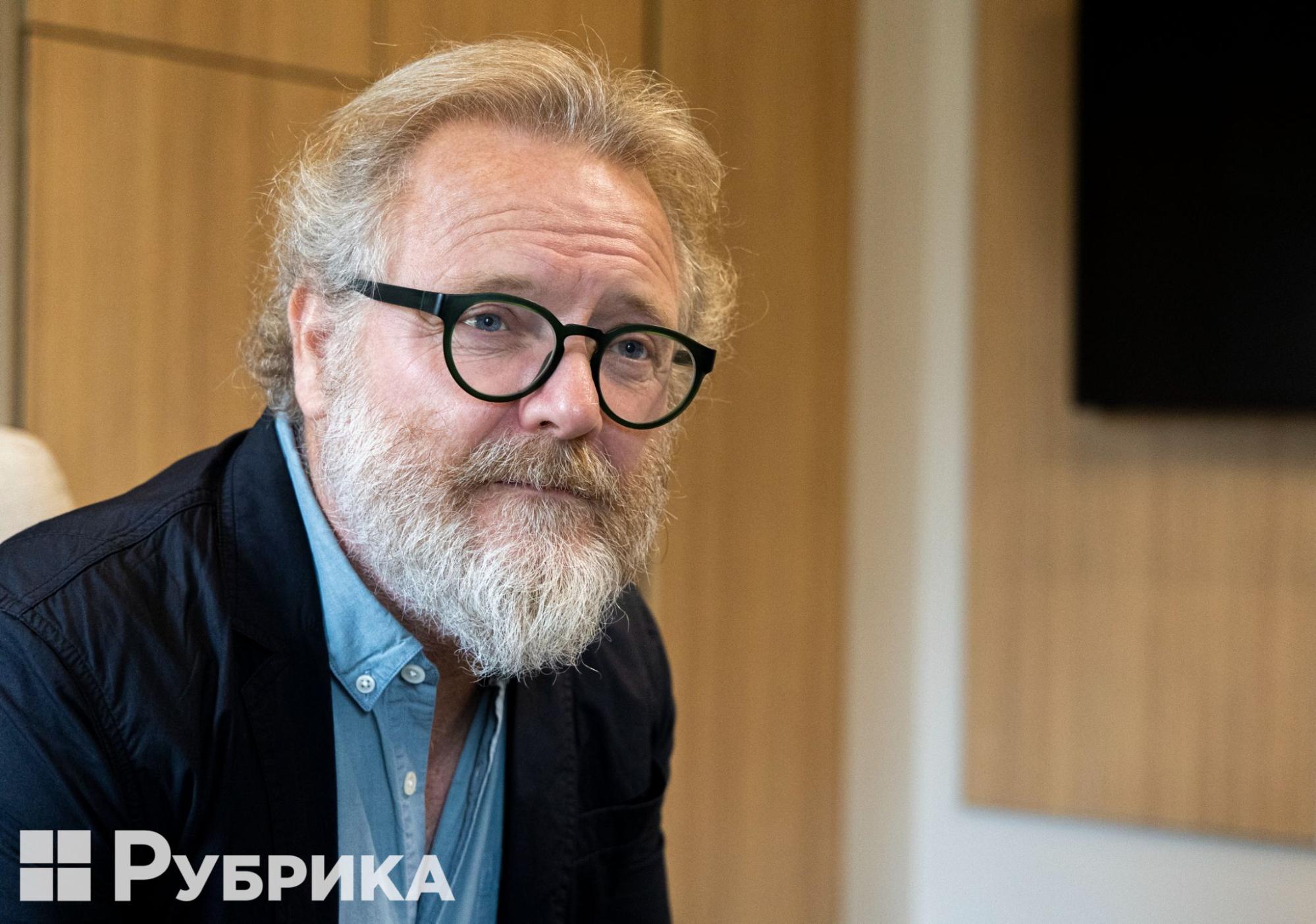
— Okay, let's move to questions directly related to Ukraine. In your lecture at KSE, you mentioned that civil society in Ukraine is like a jury. Don't you see that as a problem, regarding the development of the institutions? Nearly all the Ukrainian international partners, including those who are helping right now, have kept telling us for decades that civil society is robust. It is diverse. It really pressures the institutions and the politicians to do reforms. But the institutions still need to be stronger. Civil society will push the institutions, the politicians, and the institutions to become stronger. Do you know why it's that, and actually, what should Ukraine do with that?
— Developing strong independent institutions takes a long time and requires traditions within those institutions to develop. It takes traditions within the judiciary, for example. And you look at, even somewhere like the United States, how the judicial institutions have been corrupted by political influence in a really short time over the last decade. So, institution building and institutional independence are always a work in progress and will always be a challenge.
However, the strength of civil society is one of Ukraine's biggest assets in this process. And having a well-informed civil society that's active and can both act as a watchdog within Ukraine itself, focusing on those institutions and bringing to light corruption and other forms of mismanagement.
The intellectual capacity of Ukrainians is amazing. The research, some of it done at KSE, going into the reform process is really impressive and I think, much better than anywhere else that I'm familiar with, and built in a relatively short number of years. So that's Ukraine's biggest strength.
Then, in terms of international partners, there's been lots of research over the years that shows that international partners who try to put conditions on their support are really bad at it. Conditionality almost never works because they don't have the kind of information that they need from what's actually going on in the country.
And again, this is where civil society in Ukraine had played this really great role where when the EU was offering visa-free travel and those kinds of things, civil society voices in Ukraine were able to get their attention and say: "oh, wait a minute, guys, we need to make sure that the National Anti-Corruption Bureau (NABU) is set up and have somebody independent in charge of that actually." And really, then, the Europeans had their talking points.
They knew what to ask for and how to evaluate what was going on much better than they would otherwise have been able to do. And that has made conditionality more effective in Ukraine than it typically is. It's flawed, right, but it's better and civil society is a huge asset.
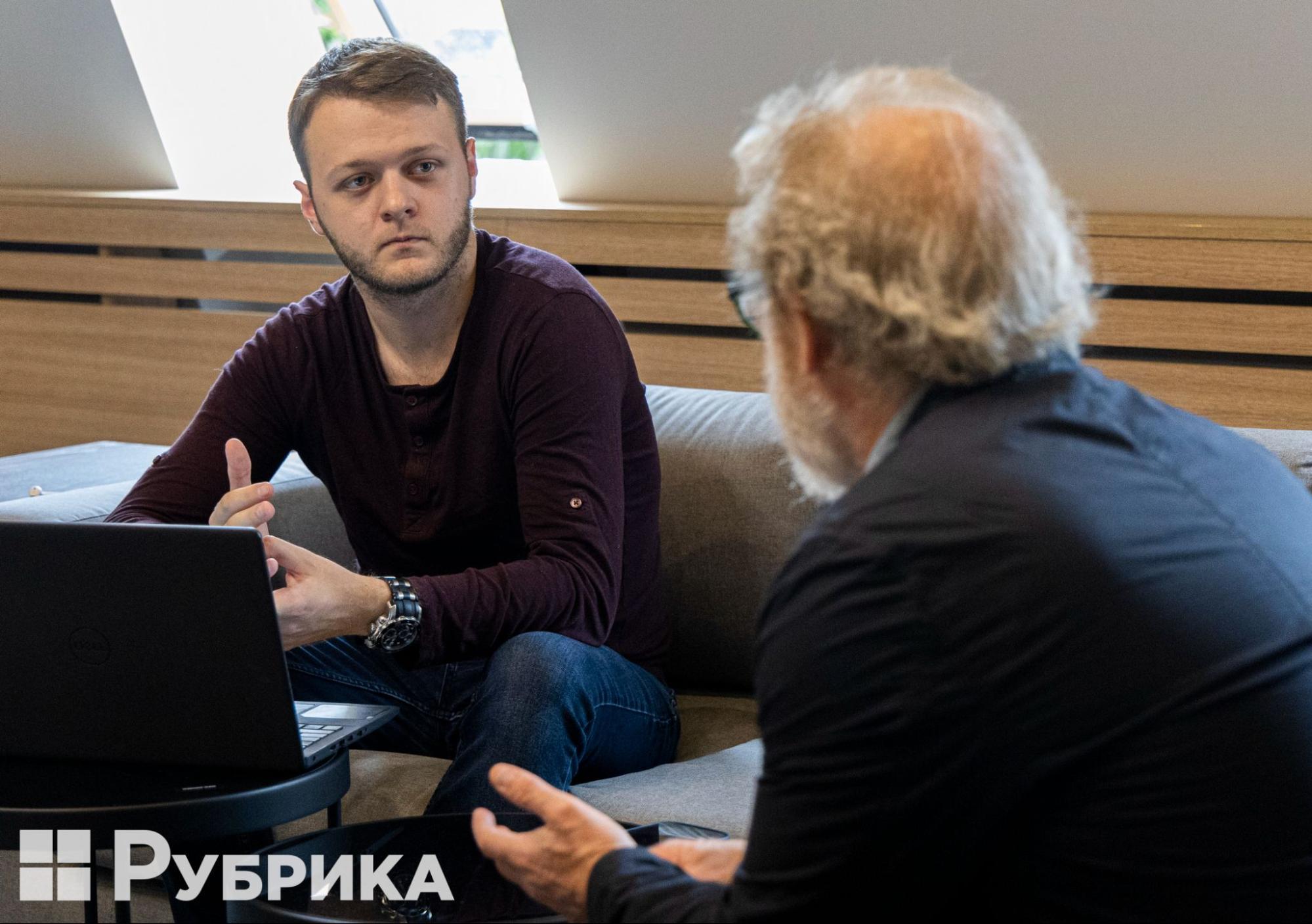
— You are an expert on regimes; how would you evaluate the current [Ukrainian] regime in terms of its capacities and its future? Ukraine may not have elections soon – both for the parliament and for the president. There are talks right now, and they have been more intense recently, but still, it's not even 50% guaranteed that there will be elections. So, how would you comment on the regime itself?
— Ukraine, before the start of this war, was a democracy. A democracy with problems — a democracy with really the biggest problem. And it is an unconsolidated party system and parties that are personalist parties. So there are called things like "the Poroshenko bloc." There's a clue there, and Servant of the People is a political vehicle for the president and his allies. And that's a problem. It's a problem that lots of relatively young democracies have.
Ukraine's democracy over the years has had very significant problems. But, if you looked at it in 2019 or 2020, you would have thought Ukraine was doing well. It has issues, but its democratic institutions are functioning better than they have done ever before. The parliament is cleaner than it has been before. The passing of all the legislation in the early years of the Zelensky administration, the so-called "turbo regime," was a challenge.
Reform was wanted, but passing so many different laws in such a short space of time with a parliamentary majority that was so large was a concentration of power and made scrutiny of those laws hard, if not really impossible. And so there were challenges, but then, of course, with the full-scale invasion, it's war.
Ukraine moved to the TV marathon, the unified news. And in the first year, one can see why Ukraine would want to do that. But it continues, and I need to learn more of the backstory to know whether that's really a good thing. I've spoken to journalists who have suggested that this is not great anymore, and it's time to move back to a more normal mode of journalism and news presentation. I suspect that the sooner that happens, the better. Ukraine has a vibrant enough sphere of journalists that can be relied upon and trusted.
— Whether one can hold elections under these conditions – that's a really hard question, right? It's a hard question in terms of safety, one of the reasons that Russia invaded Ukraine and hates Ukraine is because Ukraine is a democracy, right?
— One of the issues at stake in this war is the survival of democracy in Ukraine. Russia would do anything to mess up those elections.
Now, could they have them online and, I don't know, I'm not enough of a cybersecurity person to know the answer. So, I understand why it's challenging. But on the other hand, what better gesture to the Russians and the international community to go ahead and hold elections, right?
Even under conditions of war, sure, Ukraine is a democracy. It's a little hard to imagine how one has a debate about our own elections. You would definitely need under those conditions, you would definitely need to end the TV marathon, and you would need to have different voices in the media. So there are a lot of steps, but I think it would be complicated and difficult. I think it would be a precious goal for Ukraine to have to try to seek elections more or less on schedule if there is a way to do it safely.
— Do you see the threat of moving toward an autocracy?
— War always produces centralization of power, right? And war often produces military heroes who then go on to become politicians, right? Let's think about Dwight Eisenhower in the United States. The Democrats survived Eisenhower quite well. Eisenhower was a pretty particular individual. Men in uniform in elected office is always a reason to be anxious, I think, if you're a Democrat.
So those steps are all ahead. But I do think the sense that I get anyway is that there is an understanding in Ukraine that part of what Ukraine is fighting for is democracy, and its right to have a democratic state.
That's a core value that Ukraine is fighting for and so that will make a big difference, going forward. Churchill lost an election right at the end of World War II and came home from the Yalta Conference. Stalin was very confused. So how come you lose an election to some guy, and that's it, really? And, you know, and Britain survived and prospered, you know, the new government did lots of reforms that Churchill would never have come against. And so it is possible to have this kind of transition of power, it is possible to be a democracy and fight at the same time, even when conditions of war sometimes require some degree of centralization.
I don't know about you, but I don't spend a lot of time worrying about Ukraine's turn into an autocracy after the war. Maybe I'm naive.
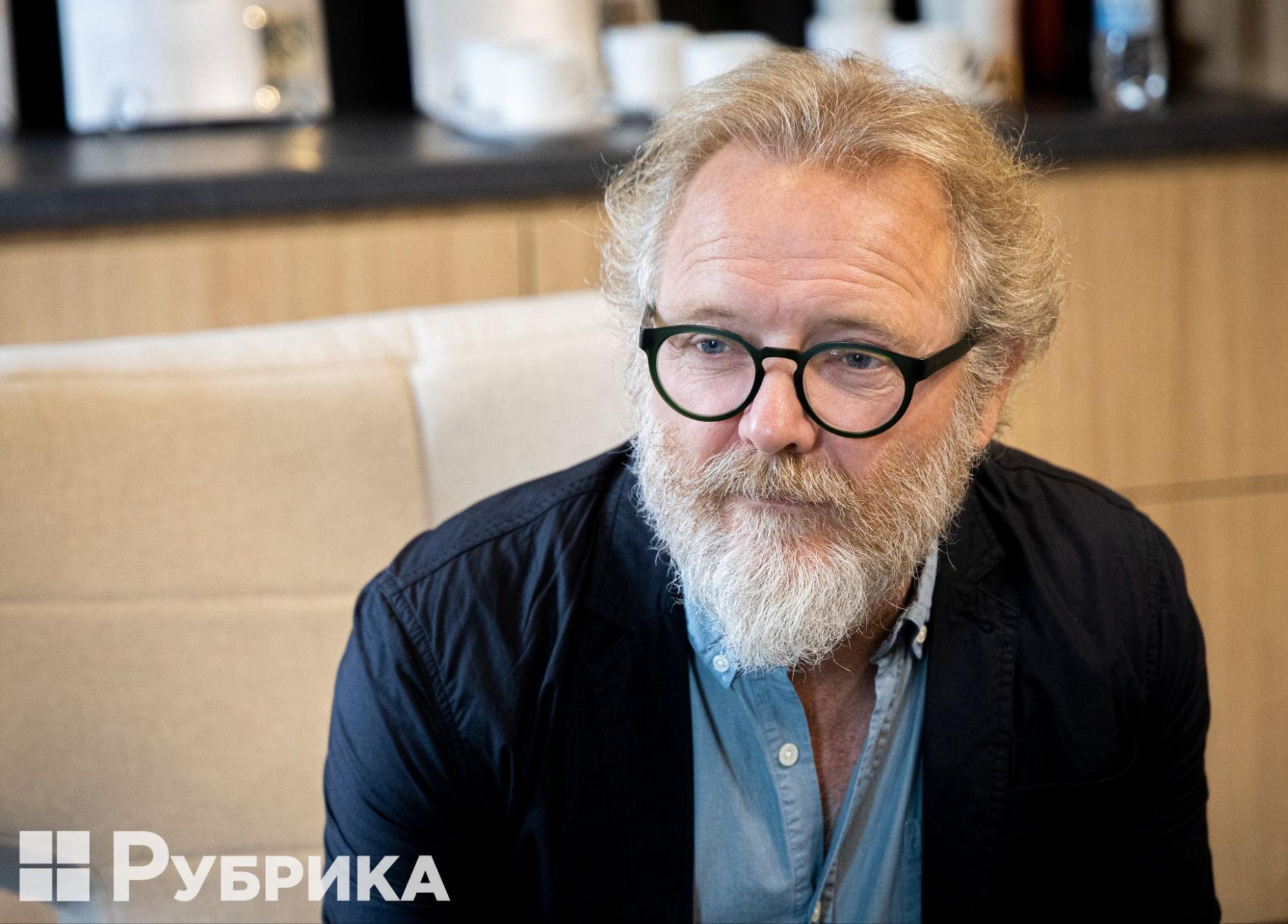
— I don't think you're naive. I believe we just see there also this idea of actually centralization of the media, and given the fact that actually the president also has a media background, and we understand its value for him, to be in the center of attention. A famous Ukrainian historian, Yaroslav Hrytsak, a friend of Timothy Snyder, said that Zelensky is actually kind of ruling the country in the way he was an actor, a comedian, and like he plays an actor who is the president, and now the international audience is the stage for him, and he really likes to be welcomed with applause and stuff like that. Probably it has some sense, but it's definitely, in my view, not the only one in terms of his abilities to run the country during such a difficult time, so it's probably just one part of it, but not the only one, of course.
— But politicians are all actors, I mean, that's what they are, it's a bullshit profession. It's about creating the impression that you understand what's going on, that you're in charge and you can control it when in fact half of them are incompetent and not very smart.
— Have you met with the president?
— No.
— And if possible, what would be your advice to Ukraine?
— I'm very wary of offering advice to Ukrainians.
I've learned a lot from Ukrainians over the years. And I'm not in a position to go around offering advice to people in this kind of situation in which their lives are at stake, and I'm just an intellectual passing by who's interested and wishes you well and all of that. But yeah, I don't have advice in that sense. What I do think is to get to the comment about the international stage and whatever. I think he [Zelensky] has done an exceptional job on the international stage.
I think that one of the things that he understood fairly early on with the full-scale invasion was that his role was to be the international face of the war and to be the guy who sometimes asks and demands support from the international community — and he's done a really good job of that.
I think he's put an identifiable face on Ukraine, whether he's really a hero or not — but many people internationally really do think he is, and they believe he personifies Ukraine's strength Ukraine's determination and bravery. That's a useful thing for Ukraine to have, from a PR perspective.
A note on the 'academic game'
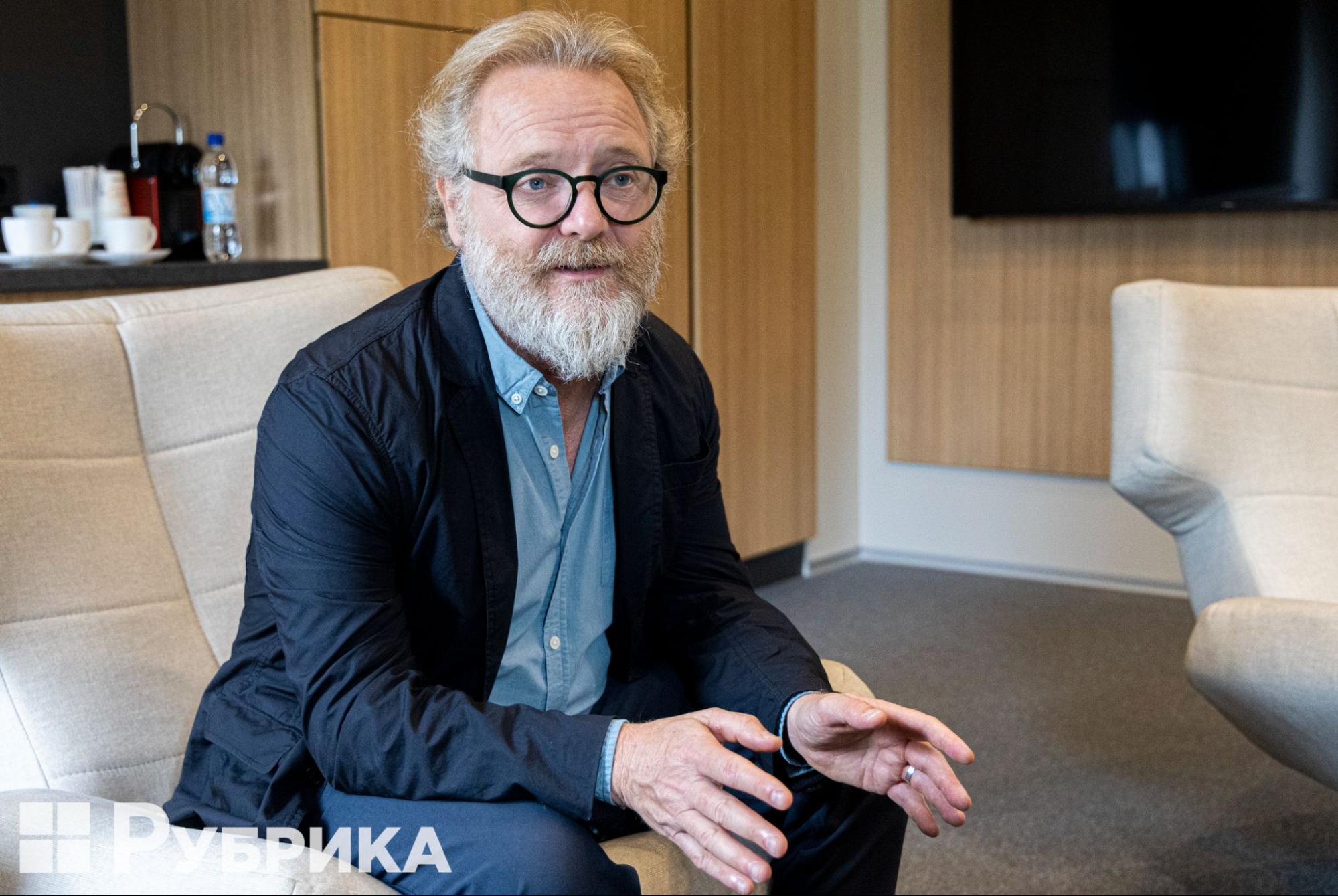
— You are one of the editors of the American Journal of Political Science. In connection to that, what can you recommend for Ukraine for Ukrainian experts to be more visible in Western academia? I know people who say that aside from some true nonsense products of the Russian academia about Donbas, for example, or Crimea or the south of Ukraine, where, for example, I came from, they acknowledge that the Russian academia actually has done quite a visible job in the UK, in the US, even in Europe. They tried promoting their narratives and some people say that despite not losing this media war since 2014 in academia, Ukraine should do much, much more. What can you recommend for Ukrainian scholars? I mean, both experienced and young experts.
— Yeah, it's fascinating. So, there are two different spheres here. One is a kind of academic sphere and one is a sort of public narrative sphere. They're related, but they're not exactly the same. What happened in Russia was there was a development of Western-style social science, mostly separate from the rest of the Russian academic sphere — and so if you would go to Moscow, there were all the different institutes, many of them were not doing what we would in the West think of as serious work; they're not doing real social science. Still, there were some in the fields of sociology to a certain extent, anthropology, and certainly in economics, and then more laterally in political science.
Those scholars have mostly left and gone to the West or gone to Kazakhstan or somewhere. And the way they became prominent was by adopting Western methodologies, working closely with Western scholars studying in the United States, and then going back sometimes and sometimes staying in the United States.
And you're playing the academic game properly. Ukrainians have started to do this over the last decade, and we've seen institutions like KSE and others really taking it seriously, the desire to publish in international journals and taking on a kind of competition that's hard, right?
And so it's hard work, taking on that hard work to actually do so when we see increasingly prominent Ukrainian scholars. There's also a group of older Ukrainian scholars who've done an outstanding job, I think, in the study of identity and language and the relationship between those things, which has really been exceptional and has taught lots of us in the West about Ukraine — and about the relationship between those things. That has corrected some of the misinterpretations and misimpressions that we have. So in terms of serious scholarship, Ukraine has done a pretty good job, and I'm very optimistic about continuing to grow.
One of the things that I'm trying to do while I'm here is run a research lab at the University of North Carolina called the Authoritarian Politics Lab. And I want Ukrainian scholars to present their work at my lab to collaborate with my students. I have a student who's been here working on oligarchic networks in the parliament in Ukraine, doing network analysis of the Ukrainian parliament. She was here until two weeks before the full-scale invasion, and I had to tell her to leave. She assured me it was going to be okay.
And so fostering those connections is really important to me. There are a number of people in the US who are interested in doing that, and I think that will really help. So, Ukrainian academia is a serious scientific exercise, I think it has done a great job.
Now the media narrative is a whole other thing and Russian money, the corruption of the press in the West, the existence of prominent outlets like Fox News in the United States, and some of the British papers are essentially far-right outlets that are either for hire or their messages are kind of consonant with what the Russians want to put out.
Harper's Magazine — one of the oldest in the US, the monthly magazine of literature, politics, culture, finance, and the arts, launched in New York City in 1850 — published an article about Zelensky that was just a disgrace. It was written by a so-called academic at Notre Dame, which is a proper university. The author writes that Ukraine should have made a deal with Putin at Minsk to basically give him Crimea and then territory and blame the war on Ukraine, Ukrainian extremism and just garbage.
And how that kind of stuff gets into prestigious outlets in the United States, frankly, I have no idea. It made me very upset when I saw it and all my colleagues were all super upset about it. So there are these right-wing networks and there's an international right-wing influence that Russia has been engaged in promoting for more than a decade, way back into the event before 2014.
And those networks they're powerful and Ukraine hasn't been a player in those kinds of areas because it's sort of relying on more liberal outlets to tell its story, and the truth is that the more liberal outlets are they're not easily co-opted in the same way that some of these right-wing guys are. I recommend that you check out this article. It'll get your blood going.

Yale professor Stanley: Russia will attack Ukraine in 10 years again unless it becomes a democracy

"We have to win, and they have to lose," in conversation with Estonia's defense official on war and the price of peace

"People here are ready to move heaven and earth to win": Kersti Kaljulaid on Ukraine's fight for freedom and EU's stance to help
Newsletter
Digest of the most interesting news: just about the main thing






